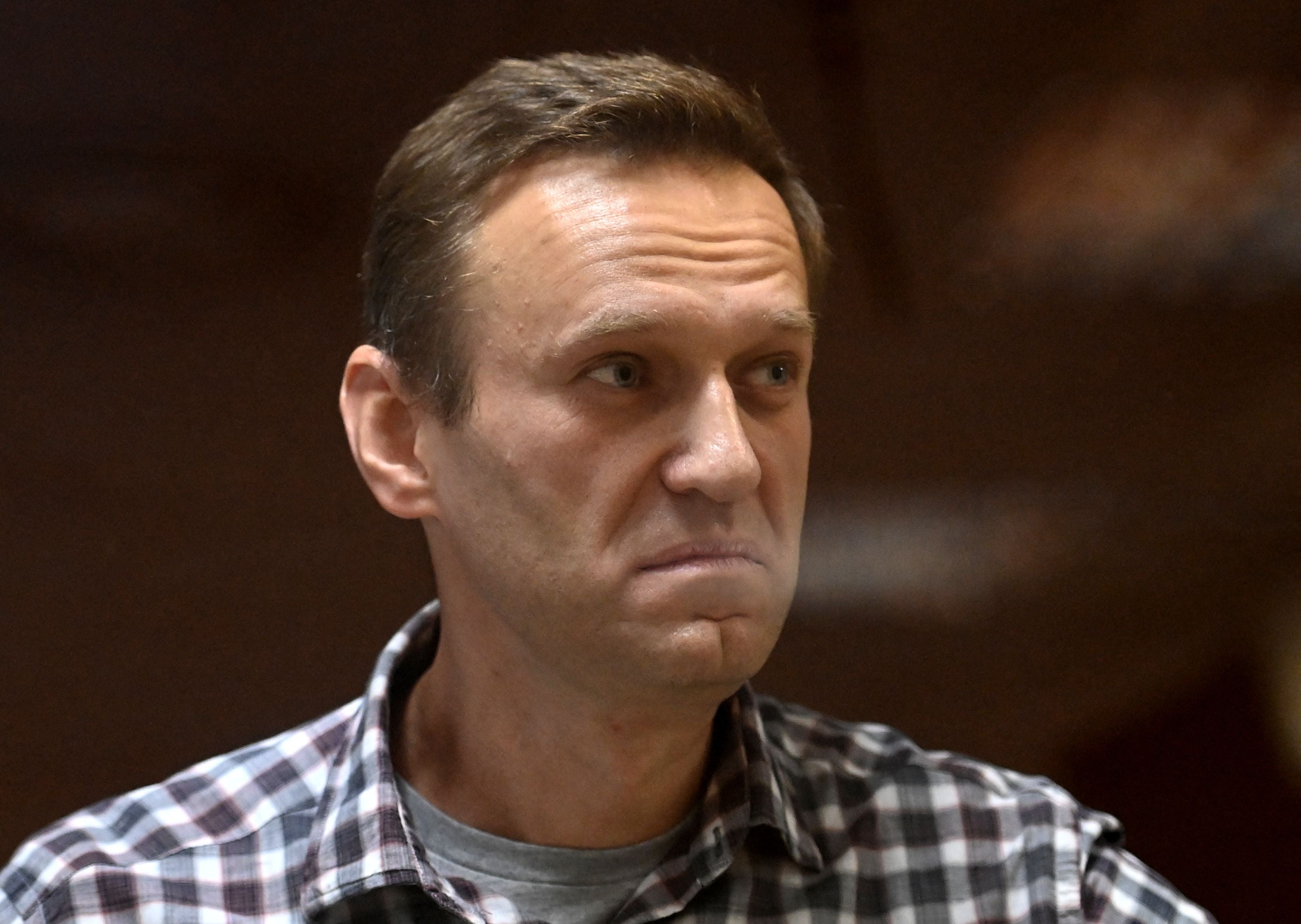Anti-Putin campaigner Navalny designated a ‘terrorist’
Alexei Navalny is 266 days into three-and-a-half year prison term

Your support helps us to tell the story
From reproductive rights to climate change to Big Tech, The Independent is on the ground when the story is developing. Whether it's investigating the financials of Elon Musk's pro-Trump PAC or producing our latest documentary, 'The A Word', which shines a light on the American women fighting for reproductive rights, we know how important it is to parse out the facts from the messaging.
At such a critical moment in US history, we need reporters on the ground. Your donation allows us to keep sending journalists to speak to both sides of the story.
The Independent is trusted by Americans across the entire political spectrum. And unlike many other quality news outlets, we choose not to lock Americans out of our reporting and analysis with paywalls. We believe quality journalism should be available to everyone, paid for by those who can afford it.
Your support makes all the difference.Russian authorities have classified the jailed opposition leader Alexei Navalny a “terrorist” and “extremist”, according to a new social media post from the Kremlin foe.
The opposition politician said he had been summoned to appear before a commission, which voted unanimously to change his status – and place a board above his prison bed calling him a “terrorist”.
But Mr Navalny, who was arrested and imprisoned on returning to Russia in January, claimed the new label may turn out less onerous than a previous “flight risk” designation. That was accompanied by much more intrusive monitoring, he suggested.
“I counted that I said ‘Navalny, Alexei, born 1976, illegally imprisoned in colony 2, section 2, reporting, 1669 times’,” he wrote in an Instagram post.
“That’s what I had to do every two hours to prove that I hadn’t run away. And it got terribly annoying.”
Mr Navalny was designated a flight risk even before being transferred to the notorious Pokrov prison colony 100km (62 miles) east of Moscow. That designation opened the door to a draining monitoring regime which he said amounted to torture.
Extremism, in comparison, was “bliss”, he wrote.
“I was worried they would demand I kiss Putin portraits and learn Medvedev’s speeches by rote, but it turns out that isn’t necessary," he wrote. "The only difference is that I now have a board above my bed.”
Mr Navalny, 45, has been Vladimir Putin’s most prominent political opponent and survived a nerve agent attack in August 2020. A compelling body of evidence connects that apparent assassination attempt with Russian authorities. The Kremlin rejects the accusation.
The opposition politician was imprisoned following a series of dubious trials, widely viewed as politically motivated and contravening legal norms, with the first of them even held in a police station.
In the months that followed Mr Navalny’s February conviction, Russian authorities worked to eviscerate his influence, outlawing his organisations, hounding his supporters and designating his movement “extremist”.
Ongoing criminal prosecutions against the Kremlin critic claim he created organisations that attempted to discredit the government and kindle a violent revolution.



Join our commenting forum
Join thought-provoking conversations, follow other Independent readers and see their replies
Comments